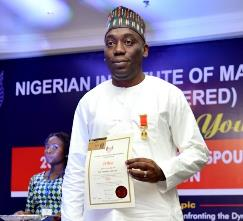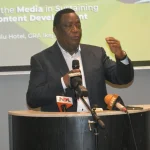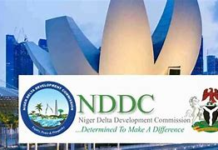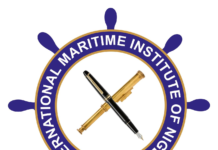
The Nigerian Maritime Administration and Safety Agency (NIMASA) and Nigerian Meteorological Agency (NiMet) have joined forces to close gaps identified by the International Maritime Organisation (IMO) during its last mandatory audit of the country’s maritime industry.
This was disclosed in Lagos, when the Director General of NiMet, Professor Mansur Bako Matazu paid a courtesy call on Director General of NIMASA, Dr. Bashir Jamoh, at NIMASA corporate headquarters.
Auditors from IMO had in 2016 conducted a mandatory audit of Nigeria’s maritime industry to among other things ascertain compliance level with IMO’s maritime security and efficiency protocols on the country’s waters
During Matazu’s visit, the two Federal Government agencies agreed to immediately set up a working committee to develop an action plan and implement a memorandum of understanding (MOU) on the provision of the things recognised as missing from the maritime sector.
“Collaboration with NiMet is a necessity; it is not for convenience. IMO had during the audit of the Nigerian Maritime Administration some years ago identified some gaps, which we believe can be closed with effective collaboration among critical stakeholders.
“Cooperation between NIMASA and NiMet is vital for the documentation and filling of the gaps. We have established a platform for action and devised various strategies for the achievement of our set goals”, Jamoh added.
On his part, Matazu said: “We desire to provide services to aid the movement of vessels on Nigerian waters. With climate change and its increasing intensity, this is the time for collaboration. NiMet weather forecasts are over 95 per cent in accuracy.”The IMO Member State Audit Scheme (IMSAS) commenced as a voluntary Scheme in 2006 and became a treaty obligation in January 2016. It aims to promote the consistent and effective implementation of applicable IMO instruments and to assist Member States to improve their capabilities, while contributing to the enhancement of global and individual Member State’s overall performance in compliance with the requirements of the instruments to which it is a party.










